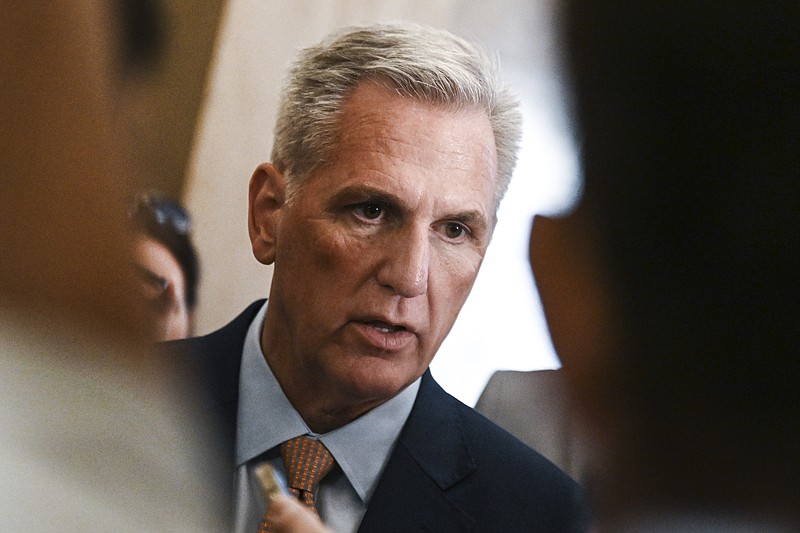Whether you're for the demand by House Republicans for deep spending cuts as a condition for raising the nation's debt ceiling or you're against it, there are some things you should know in assessing their gambit.
Perhaps the single most important fact is this: While Speaker Kevin McCarthy likes to claim that his debt limit bill would break Democrats' "addiction to spending," the Republicans — whose own appetite for spending is well established — would subject just 13% of federal spending to the knife.
They've said they'll exempt national defense, some veterans programs, Social Security and Medicare, which amounts to about half of all spending. As for the portion they're targeting, so-called domestic discretionary spending, that relatively small part of the overall budget covers just about everything else the government does, and that Americans expect it to do.
Just before midnight on Monday — midnight! — the House Appropriations Committee canceled its Tuesday and Wednesday meetings when voting was scheduled on the first of the dozen bills that annually fund the federal government's operations. Those bills have to fill in the gory details of the spending cuts that Republicans left unidentified when they passed McCarthy's debt limit bill last month.
The stated reason for the postponement: The committee's Republican majority wanted to give McCarthy "maximum flexibility" in his talks with Biden.
The real reason: They didn't have the votes to pass their own bills. Failure, in turn, would have undercut McCarthy's leverage in the negotiations.
McCarthy's debt-limit bill calls for trimming 9% from the $1.6 trillion that currently goes to annual discretionary spending. But with Republicans' promised exemptions for the Pentagon and some veterans programs, the cuts in what's left on the table would reach something close to a devastating 30%. Accounting for inflation, the reductions would be even greater.
Even then, the savings generated would be small relative to the nation's annual budget deficits. And Republicans, if they have their way, would in effect wipe out those savings by extending all the Trump-era tax cuts for another decade, adding trillions more to the federal debt they purport to fear.
So what's included in the budget slice that Republicans want to carve up? The bills stalled in the Appropriations Committee by Republicans' infighting would cover spending for agriculture, including farm subsidies and nutrition programs; border protections and homeland security; a new program to assist veterans exposed to toxins during wartime; and the construction and maintenance of military facilities and housing, to name some.
Also on the Republicans' block in future appropriations bills: air traffic control; cancer and Alzheimer's research; Meals on Wheels; infrastructure in general; opioid treatments; Head Start; rail, food and drug safety; and much, much more. Although Social Security and Medicare wouldn't face cuts, good luck getting assistance once the programs' staffing is reduced.
Economists and fiscal experts consider much of the spending that is at issue as "seed corn" investments in physical and human capital, with a proven return.
Republicans say they'll make no concessions, that agreeing to raise the debt ceiling is concession enough. Really? Lifting the debt limit is their patriotic duty, especially considering their complicity in driving up the debt — fully a quarter of it during Donald Trump's presidency.
Consider this: Republicans want to raise the debt limit only enough to allow the Treasury to borrow through next spring. What then? They'll hold us up for more spending cuts.
That would be on top of the ones they're already having trouble producing, while threatening the nation with economic disaster.
The Los Angeles Times
